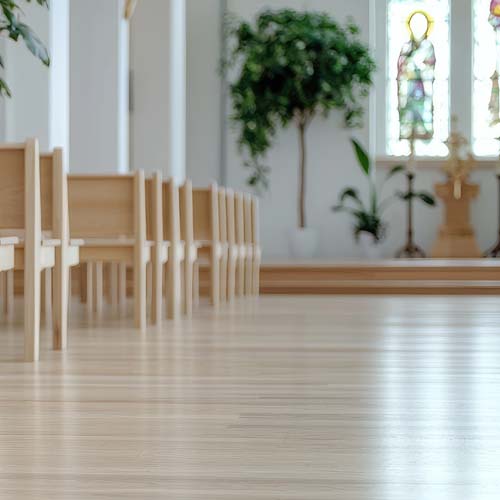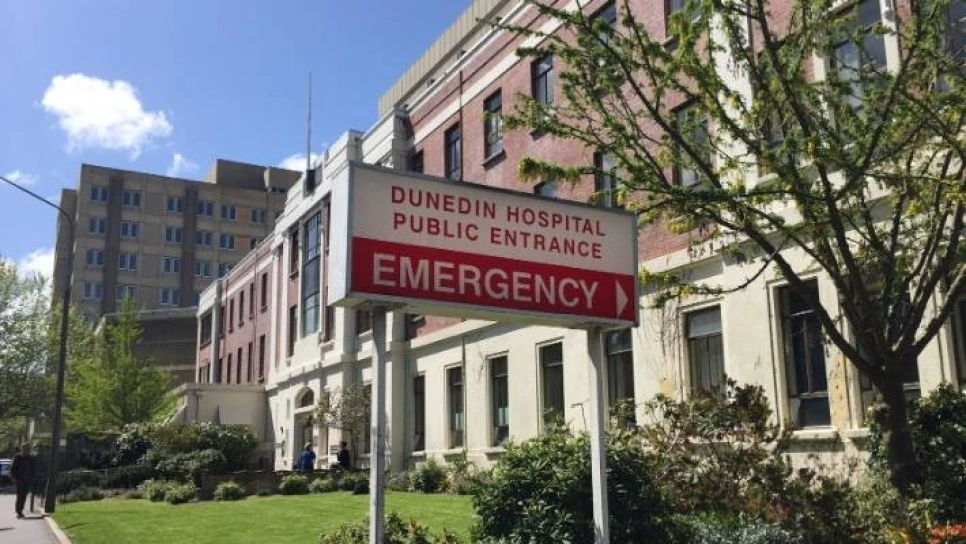On this page
- Dunedin Hospital emergency department (ED)
- After hours and urgent medical centres
- Contact information
- Visiting hours
- How to get to Dunedin Hospital
- Parking information
- Dunedin Hospital facilities
- Dunedin Hospital maps
- Dunedin Hospital services
- Patient and visitor information
- Your stay in hospital
- Feedback
After hours and urgent medical centres
If your health emergency is not life threatening, but you cannot wait for an appointment with your usual doctor or healthcare provider, go to an after hours or urgent medical centre. They can help you with things like bad cuts, sprains or breaks, minor head injuries, or if you are feeling really sick. You do not need an appointment but might have to wait.
Dunedin Urgent Doctors & Accident Centre
18 Filleul Street
Dunedin
Otago 9016
Phone: 03 479 2900
Email: reception@urgentdocs.co.nz
Contact information
For general enquiries:
- phone 03 474 0999
- fax 03 474 7025
If you have an upcoming admission and feel sick, call the admissions office on 03 470 9322
The admissions office is open 8am to 4:30pm, Monday to Friday.
Postal address:
Dunedin Hospital
Private Bag 1921
Dunedin
Otago 9054
Visiting hours
Visiting hours are 2pm to 8pm daily.
You can visit after hours if someone is seriously ill or has other serious circumstances. Talk to a staff member to arrange this.
You need an appointment to visit someone in:
- neonatal intensive care unit
- high dependency unit
- adult intensive care unit.
The adult intensive care unit has a designated quiet time of 12pm to 2pm.
How to get to Dunedin Hospital
The main entrance to the hospital is through street entrances on Great King Street and Cumberland Street.
Dunedin Hospital
201 Great King Street
Dunedin
Otago 9016
Bus
Many bus routes stop at Dunedin Hospital.
For timetables and maps, go to the Orbus website.
Health shuttle
Hato Hone St John
The Hato Hone St John's Waka Ora health shuttles help people get to health and wellbeing related appointments and home again. Their shuttles are available in the following areas for people going to and from Dunedin Hospital:
- Cromwell (via Milton or Palmerston)
- Dunedin local area
- Gore
- Hokonui
- Invercargill
- Mosgiel
- Northern Southland
Find out about shuttle times in your area by calling St John on 0800 103 046or going to their website.
Waka Ora Health Shuttles — St Johnexternal link
Coast Line Tours
Coast Line Tours travel from Oamaru to Dunedin Hospital on weekdays. To book, call 027 256 5651
National Travel Assistance
The National Travel Assistance Scheme helps people who need to travel long distances or travel frequently for health appointments.
Parking information
There are pick-up and drop-off zones at the street entrances on Great King Street and Cumberland Street.
Inside the hospital campus, there is a drop-off area at the main entrance to the building.
Parking at Dunedin Hospital is reserved for outpatients.
- Access to upper concourse parking is from Great King Street.
- Access to lower concourse parking is from Cumberland Street.
Ask if this parking is available when making a booking.
For information about parking near the hospital, visit the Dunedin City Council website.
Where you can park — Dunedin City Councilexternal link
St John hospital hosts can stay with a patient while a car is being parked. They are available 9am to 4pm, Monday to Friday.
Mobility parking
Mobility car parks are available on the upper concourse and by the hospital entrances on Great King Street and Cumberland Street.
Bike parking
There are bike stands near the oncology centre on the upper concourse. Enter through the entrance on Great King Street.
Dunedin Hospital facilities
Wi-Fi
Free Wi-Fi is available at Dunedin Hospital. Connect to the 'SDHB Patient WiFi' network.

Café
The Dispensary is located on the ground floor of Ward Block — South Wing.
Opening hours:
- 6:45am to 6pm, Monday to Friday
- 8:30am to 3:30pm, weekends.

Chaplain
Hospital chaplains, ministers and lay church visitors are available to visit you. They can be contacted 24 hours a day, 7 days a week, either through your nurse or the hospital telephone operator.
The hospital chapel is located on the ground floor of Ward Block — South Wing. It is always open. There is worship and holy communion on Sundays at 10:30am.

Public phones
- Pay phones are available in some areas. There is a card phone in the main foyer.
- Access to ward or department office phones is at staff discretion.
- There are free phones for Dunedin Taxis, City Taxis, Nab a Cab and Southern Taxis in the vehicle concourse entrance, off the main foyer on the ground floor.
New Zealand Post box
There is a New Zealand Post box in the main foyer.
Patient and visitor information
Information about accommodation is available at the enquiries desk. You can also ask a hospital social worker.
The Māori Health Unit provides a family room service, Te Whare Whānau. This is a short-term accommodation option (1 to 3 nights) available to whānau members of critically ill patients.
For information about Te Whare Whānau, ask the nursing staff.
If you need assistance attending your appointment, call the phone number on your appointment letter before attending so we can assist you. This may include arranging an orderly to meet you at the hospital entrance with a wheelchair.
Māori Health Unit
The Māori Health Unit provides nursing and social support services to Māori and non-Māori patients and their whānau. We are here to support you and your whānau to achieve maximum health, wellbeing and independence.
Additional support is available for Māori and Pasifika to help ensure the return home after a hospital stay goes as well as possible.
We are committed to providing you with a holistic health service and aim to:
- connect you and your whānau with resources and services
- make sure that your return home is successful.
Māori health services — Otago and Southland
Pacific Islands nurse specialist service
The Pacific Islands nurse specialist service is designed to assist Pacific people returning home after a hospital stay and to provide nursing follow-up. We aim to prevent the need for hospital admission by offering community care and home visits. There is ongoing contact with GPs and primary-based (community) services focusing on healthcare and education.
The service is available Monday to Friday.
Nurses work with the local Pacific Islands Trust, where other support and nurse-led clinics are available.
Abortion safe areas cover up to 150 metres around a premise where abortion services are provided. They prohibit certain behaviours that could be considered distressing to a person accessing or providing abortion services.
Abortion safe areas — Ministry of Health | Manatū Hauoraexternal link
The Dunedin Hospital safe area is the area enclosed by a line that:
- begins at the intersection of Gowland Street and Clarendon Street, then
- proceeds in a generally southerly direction following the eastern side of the footpath to 205 Castle Street, then
- proceeds along a curved line following a 150 m radius from the boundary of the Dunedin Hospital land parcels to George Street, then
- proceeds in a north-easterly direction to 449 George Street, then
- proceeds in a north-easterly direction along a curved line following a 150m radius from the boundary of the Dunedin Hospital land parcels to 452 George Street, then
- proceeds to the point described in 1.
To view a map of the area, go to the Ministry of Health | Manatū Hauora website.
Safe Area locations — Ministry of Health | Manatū Hauoraexternal link
Due to the risk that fresh flowers pose to patients with respiratory disorders, you cannot bring them into the following areas:
- intensive care unit
- high dependency unit
- oncology ward
- cardiovascular ward
- respiratory ward
- surgical ward
- medical ward
- multi-bed rooms.
If you are bringing flowers in or using florist delivery services, check with the ward reception.
St John Ambulance Service hospital hosts and volunteers are here to assist you, whether you are a patient or a visitor, in the following areas:
- emergency department
- oncology department
- hospital foyer.
We provide 24-hour language support in more than 55 languages, including New Zealand Sign Language. We can support you in hospital, or if you need to see another healthcare provider.
Interpretation services can be provided face-to-face, by video or by phone.
How to book an interpreter
If you have a hospital appointment or have been admitted to the hospital, let a member of our staff know that you need an interpreter.
If you need to see another healthcare provider, such as a GP, let them know as soon as possible that you need an interpreter.
Interpretation services are free of charge for patients attending publicly funded appointments at healthcare facilities, either in the public hospital system or the community. This is subject to patient eligibility, such as residency.
All staff are trained to understand and respect diversity. Many have undertaken additional sign language, cultural and linguistic training.
The hospital and grounds are all smoke and vape free areas. If you are a patient we can help with nicotine replacement therapy.
Many different health professionals, including doctors, nurses, midwives, and allied health staff, come to work at Dunedin Hospital every day.
Students are an important part of this hospital's healthcare team and get valuable on-the-job training.
If it is proposed that students are to be involved in your care, you will be asked for your permission for students to help care for you.
- Students are bound by the same privacy principles as Health New Zealand | Te Whatu Ora staff.
- Students are supervised, with their work checked, by registered professional staff.
Things to keep in mind during your stay:
- Your comfort, dignity and privacy come first.
- You have the right to expect safe, quality care, to be treated respectfully and to participate in care decisions under the Code of Health and Disability Services Consumers' Rights.
- This is a teaching hospital, and students are an important part of our healthcare team.
- Please ask questions and raise any concerns you have along the way. We are here to listen.
Examples of how students may be involved in your care:
- Assessing your health concerns.
- Medical student stitching a wound or assisting the surgical team in the operating room.
- Midwifery student monitoring a person during labour.
- Pharmacy student interviewing you to write a list of the medicines you take at home.
- In some circumstances (such as emergencies or staff shortages) a student may be required to assist in your care and this will be discussed with you.
If you say yes
Each time a new student meets you, you have the right to decide if they can participate in your care.
Your consent is not a blanket consent — you can choose what level of involvement you are comfortable with.
You can withdraw your consent at any time.
Some aspects of healthcare can be challenging. For example, you might need to have an examination or procedure of a more personal nature.
If you say no
Student practical placement is an important part of training, but above all else, we want you to feel safe and comfortable.
Your decision will not disadvantage you.
You can change your mind if you later decide to have students help care for you.
Questions to ask your care team
- What are the risks of having a student involved in my care?
- What are the benefits of having a student involved in my care?
- Can I provide feedback to the student?
